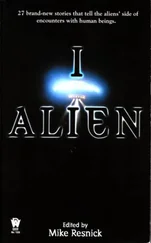Mike Resnick - Birthright
Здесь есть возможность читать онлайн «Mike Resnick - Birthright» весь текст электронной книги совершенно бесплатно (целиком полную версию без сокращений). В некоторых случаях можно слушать аудио, скачать через торрент в формате fb2 и присутствует краткое содержание. Жанр: Старинная литература, на английском языке. Описание произведения, (предисловие) а так же отзывы посетителей доступны на портале библиотеки ЛибКат.
- Название:Birthright
- Автор:
- Жанр:
- Год:неизвестен
- ISBN:нет данных
- Рейтинг книги:4 / 5. Голосов: 1
-
Избранное:Добавить в избранное
- Отзывы:
-
Ваша оценка:
- 80
- 1
- 2
- 3
- 4
- 5
Birthright: краткое содержание, описание и аннотация
Предлагаем к чтению аннотацию, описание, краткое содержание или предисловие (зависит от того, что написал сам автор книги «Birthright»). Если вы не нашли необходимую информацию о книге — напишите в комментариях, мы постараемся отыскать её.
Birthright — читать онлайн бесплатно полную книгу (весь текст) целиком
Ниже представлен текст книги, разбитый по страницам. Система сохранения места последней прочитанной страницы, позволяет с удобством читать онлайн бесплатно книгу «Birthright», без необходимости каждый раз заново искать на чём Вы остановились. Поставьте закладку, и сможете в любой момент перейти на страницу, на которой закончили чтение.
Интервал:
Закладка:
Item: The insectoid population of Procyon II, suffering from the pangs of overpopulation, had found some pretext to go to war with the humanoids of Procyon III. The governors, unable to reach an agreement, had put the issue before the overseer, but before he could decide the merits of the case, the Navy had stepped into the picture, breaking up the war by bombarding Procyon II with deadly radiation. Not only were some ninety percent of the insectoids destroyed, but anti-human pogroms broke out spontaneously on seven of the other nine insectoid worlds in the Commonwealth. When Vestolian looked into the matter, he found that the governors had pursued his chain of command, and that the Navy had very definitely avoided any charge of inaction. Item: The Department of Microbiology had requested an appropriation of seventeen billion credits; the Department of the Budget had agreed to four billion. The Arbitration Board had settled on a figure of six billion, and the entire Microbiology Department went on strike pending a meeting with the Director. Since they produced most of the vaccines used by humans on alien planets, a strike was intolerable, so Vestolian was forced to hear their arguments. He upped the appropriation to nine billion, and since there was no higher authority to appeal to, the microbiologists willingly went back to work. In the meantime, three expeditionary forces on the frontier worlds died due to lack of vaccine. Item: The ambassador to Alioth XIV, a world not yet incorporated into the Commonwealth, had succeeded so well in imparting his notions of a utopian democracy into the minds of the populace at large that a bloody civil war was instigated, resulting in more than 29 million deaths before the totalitarian leadership beat and starved the opposition forces into submission. When brought before an enraged Vestolian, the ambassador protested that he was merely using his initiative as directed. Why had the problem not been reported in earlier, solvable stages? Because the Director had made it clear that he wanted to be consulted only when all other courses of action had failed—and by that time it was, regrettably, too late.
Item: A loosely-knit union of two hundred worlds threatened to secede from the Commonwealth,
claiming that the Director had made himself virtually inaccessible to them. When it was pointed out that all two hundred planets were economically sound and militarily strong and that the Director was preoccupied with smoothing over the problem spots of the Commonwealth, and that, further, no previous Director had ever seen delegations from any of the planets in question, the response was that at least none of the Director's predecessors had made it a matter of policy not to see them. It was all a matter of semantics and viewpoints, but Vestolian had to waste three days with ambassadors from the two hundred worlds rather than commit his military forces to the only viable alternative. Item: Those problems that reached his desk were rarely complex situations requiring executive decisions that only Vestolian could make. More often, they were diplomatic and bureaucratic misunderstandings that had been blown up all out of proportion. Item: The serious problems, the ones Vestolian should have been dealing with, were being acted on—and frequently created—at far lower levels, and were usually buried somewhere along the complex chain of command, ready to rise flaming to the surface generations hence. Once again he called Zenorra and Oberlieu into his presence. “Good God!” he muttered, more to himself than to them. “It's even worse than before!” He looked up at Zenorra. “I issued good, intelligent, proper orders, orders specifically designed to avoid bureaucratic turmoil and stagnancy, orders that should have freed me for more important matters than the stuff I'm dealing with every day. What went wrong?” Zenorra shrugged. “What's wrong has nothing to do with you or your intentions, Director,” he said. “What's wrong is the nature of Man and of his empire. Have you noticed that, paradoxical as it seems, when Man and his possessions are at their smallest and weakest, his government is usually a democracy, giving the people the broadest and most vocal representation. As Man and his empire grow larger and more powerful, quicker and more forceful decisions are required, and the government grows progressively less representative, from republic to oligarchy. And now, with an empire that literally encompasses the entire galaxy, the crying need is for one ultimate authority. There are too many diverse races and diverse interests for any form of fair representation; all that is left is the iron rule of one man. Call it what you will, but the proper word is ‘monarchy.’ Admittedly, you can handle only the tiniest percentage of the decisions personally, but in this case the appearance must be of a single leader whose rule is not subject to question or debate, whose power is absolute. I'll tell you something else, Director: When you repeal your orders, as you surely will, the problems will not abate one iota. Our means of governing will remain inefficient, literally thousands of worlds with legitimate problems and grievances will be ignored or mishandled, and problems sown decades and centuries ago will continue to crop up to embarrass us.
“On the other hand, abdication of any of your powers will ultimately result in anarchy. Inefficient as our system is, it is still more effective than any other means of governing an empire this size. We've simply come too far to go back. Any form of election would take half a century, and the power void created by fifty years without an ultimate authority would be intolerable. The worlds of the Commonwealth are too economically and culturally interdependent upon each other ever to go back to isolationism. Even the alien races have been bound to us militarily and economically. No, the only alternative to this is a galaxy-wide state of anarchy, and I do not consider that to be an acceptable one.” “Nor do I,” said Vestolian with a sigh. “I suppose, though, that every Director has to find it out for himself.”
Zenorra nodded sadly.
“Cancel all previous directives,” said Vestolian presently. “We'll simply have to make do with things as they are, and drink an occasional bittersweet toast to things as they could never have been.” And the Director of the Commonwealth, wishing that he were anyone else in the universe, ate a solitary dinner and retired early.
That evening an emigration proclamation issued sixty-three years earlier by his grandfather was finally put into effect on a world that had not yet been incorporated into most maps of the Commonwealth. He was awakened in the middle of the night to be informed that he was at war again. 18: THE SYMBIOTICS
...It was inevitable that Man should ultimately turn his eyes toward other galaxies. The problems confronting him as he attempted to reach outward beyond his immediate stellar group dwarfed in both magnitude and difficulty every other challenge he had ever faced. Indeed, the mere act of survival on a trip of more than a million light-years to the nearest neighboring galaxy required the most innovative approach...
— Man: Twelve Millennia of Achievement (No mention of the symbiotics can be found in Origin and History of the Sentient Races .)
Things had been going pretty well for Man. He owned, and ran, about as much of the galaxy as he was ever going to. There were still some worlds and a few entire systems that he had not assimilated, but only because he had thoroughly examined them and found them wanting. There were still a handful of races that existed outside the Commonwealth's enormous economic web, but only because they had so little of value to offer that Man hadn't gotten around to them yet. And so, seeking new challenges, Man turned his vision outward. The notion had existed for centuries, perhaps for millennia, and had finally been put into words by the current Director of the Floating Kingdom: Man's destiny had only begun in this galaxy. It would come to fruition with nothing less than the entire universe.
Читать дальшеИнтервал:
Закладка:
Похожие книги на «Birthright»
Представляем Вашему вниманию похожие книги на «Birthright» списком для выбора. Мы отобрали схожую по названию и смыслу литературу в надежде предоставить читателям больше вариантов отыскать новые, интересные, ещё непрочитанные произведения.
Обсуждение, отзывы о книге «Birthright» и просто собственные мнения читателей. Оставьте ваши комментарии, напишите, что Вы думаете о произведении, его смысле или главных героях. Укажите что конкретно понравилось, а что нет, и почему Вы так считаете.











